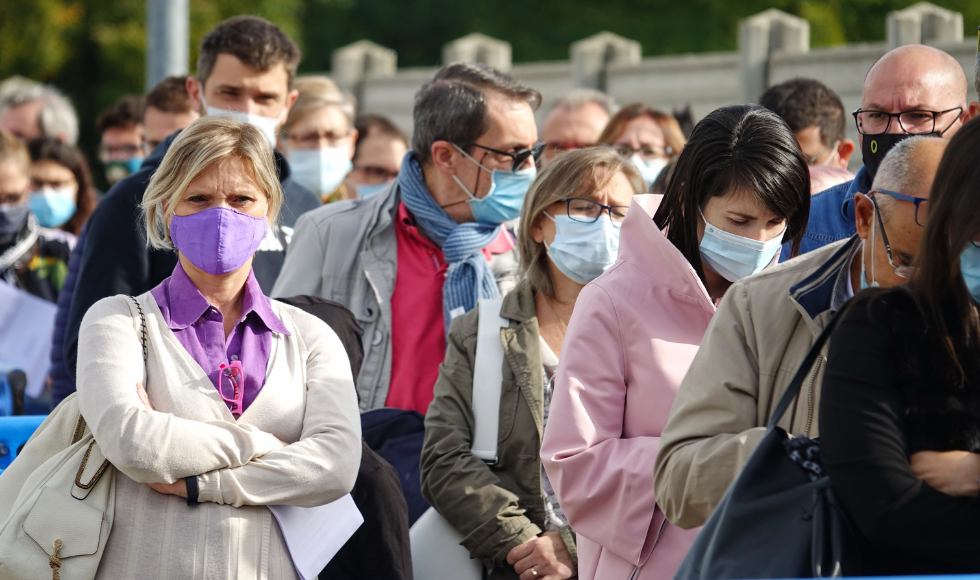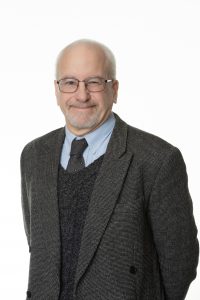‘If we go through another pandemic, we will have lessons from this one’

Historian Ian McKay's Syndemic Magazine delves into the implications and lessons from COVID-19 that we can apply to future challenges. (Shutterstock image)
BY Kaleigh Wisman, Future of Canada Project
June 9, 2022
As the world continues to grapple with the profound losses and global shifts caused by the pandemic, an interdisciplinary project based at McMaster is looking at ways to prevent history from repeating itself.
Canada’s Democracy: Informed Citizens, Brighter World encourages people living in Canada to reevaluate their relationship to the natural world and address crises related to it—including the COVID-19 pandemic.

“In the case of the pandemic, the idea that the past must be studied to clarify the future is almost self-evident,” says Ian McKay, chair of the L.R. Wilson Institute for Canadian History, and principal investigator for the project.
One component of the project is Syndemic Magazine—an online publication and lecture series that delves into the implications of the pandemic and what lessons we can apply to future challenges. The name for the publication was inspired by Dr. Richard Horton, who suggests that “syndemic” best describes the global impacts of COVID-19 because the term considers three elements: the virus, the chronic conditions that make people more susceptible to it, and a situation of deepening poverty and inequality.
By analyzing the pandemic with these three elements in mind, McKay believes we can better understand the systemic conditions that have disproportionately impacted marginalized groups such as Indigenous communities and front-line workers.
With 11 lectures in the series, all of which are available on YouTube, and six issues of the digital magazine (the final will be published in July 2022), McKay and his team of graduate students gathered internationally renowned experts from diverse disciplines to share their take on COVID-19 through lenses such as climate change, gender and race.
Contributors to Syndemic include scholars and public intellectuals such as Noam Chomsky discussing civic imagination and manufactured ignorance in the post-pandemic world; André Picard on Canada’s health-care and elder-care systems during the pandemic; Andreas Malm discussing the link between COVID-19 and climate change; Nancy Fraser, who argues that the pandemic has revealed the deep-seated dysfunctionality of capitalism, and Naomi Klein, who interprets the pandemic as a time in which the powerful will seek to secure their own interests.
While each contributor brought their own area of expertise to Syndemic, there are throughlines that appear throughout the series: We can no longer sacrifice our planet for profit, and we must advocate for and engage marginalized communities.
“If we go through another pandemic, we will have lessons from this one,” McKay says. In curating content for Syndemic, he aimed to create an accessible resource for those seeking insight into the global issues that determined the course of the pandemic. “At the project’s peak, we were reaching people all around the world.”
By providing video lectures as well as articles of varying complexity, Syndemic Magazine offers several ways for audiences to engage with the content.
“We had a lot of non-academics check in for [some of the lectures] including long-term care facility workers and personal support workers,” McKay says.
These stakeholders were able to share their own experiences from the frontlines of the pandemic, creating a dialogue between those experiencing issues firsthand and those analyzing these experiences.
“We want to separate the wall between intellectuals and the general public,” he explains.
Syndemic Magazine and its umbrella project, Canada’s Democracy: Informed Citizens, Brighter World are initiatives made possible by the Future of Canada Project.
In 2020, following a generous $5 million donation from Chancellor Emeritus L.R. “Red” Wilson ‘62, McMaster launched the Future of Canada Project to provide funding for research focused on building a better future for Canada and a brighter world — one that is more equitable, sustainable, resilient and prosperous.
McKay’s work is one of the Future of Canada-supported projects that is examining the past in order to better tackle complex and nationally relevant issues.
“We have to change how we live and especially how we interact with the environment,” says McKay. “If we don’t change this pattern, we’re going to go through this again and again.”


